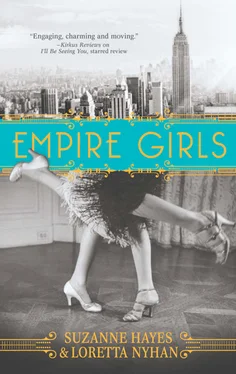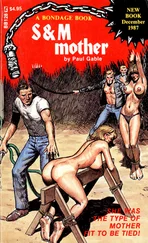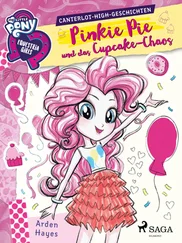The critically acclaimed authors of I’ll Be Seeing You return with a riveting tale of two sisters, set in the intoxicating world of New York City during the Roaring Twenties.
Ivy and Rose Adams may be sisters, but they’re nothing alike. Rose, the eldest, is the responsible one, while Ivy is spirited and brazen. After the unexpected death of their father, the women are left to reconcile the estate, when they make a shocking discovery: not only has their father left them in financial ruin, but he has also bequeathed their beloved family house to a brother they never knew existed. With only a photograph to guide the way, Ivy and Rose embark to New York City, determined to find this mysterious man and reclaim what is rightfully theirs.
Once in New York, temptations abound at every turn, and soon the sisters are drawn into the glitzy underbelly of Manhattan, where they must overcome their differences and learn to trust each other if they’re going to survive in the big city and find their brother. Filled with unforgettable characters and charm, Empire Girls is a love letter to 1920s New York, and a captivating story of the unspoken bond between sisters.
Praise for Suzanne Hayes & Loretta Nyhan and I’ll Be Seeing You
“I devoured this story in one greedy, glorious gulp. Oh, the women! I love them. I love their families and their voices and their stories. I bet you’ll love them, too.”
—Marisa de los Santos, bestselling author of Love Walked In
“Timeless and universal…a deeply satisfying tale.”
—Booklist
“A delight! I’ll Be Seeing You made me want to get out a pen and paper and write a friend a good old-fashioned letter.”
—Sarah Jio, bestselling author of The Violets of March
“As beautifully written as it is captivating. An absolutely terrific debut.”
—Sarah Pekkanen, author of The Opposite of Me
“A moving portrayal of women waiting and enduring and re-inventing their lives in wartime, and a wonderful affirmation of the life-enhancing potential of female friendship.”
—Margaret Leroy, author of The Soldier’s Wife
“Vivid and well-crafted…. Readers will laugh, cry and be inspired.”
—Pam Jenoff, bestselling author of The Kommandant’s Girl
“I read this sweet, compassionate novel with my heart in my throat.”
—Kelly O’Connor McNees, author of The Lost Summer of Louisa May Alcott
“An all-around beautiful tale of the power of love and friendship.”
—RT Book Reviews
Empire Girls
Suzanne Hayes & Loretta Nyhan

www.mirabooks.co.uk
To my daughters, Rosy, Tess and Grace. Sisters who save secret smiles for one another. I adore you.
—Suzanne
To New York, city of my dreams.
—Loretta
Contents
CHAPTER 1
CHAPTER 2
CHAPTER 3
CHAPTER 4
CHAPTER 5
CHAPTER 6
CHAPTER 7
CHAPTER 8
CHAPTER 9
CHAPTER 10
CHAPTER 11
CHAPTER 12
CHAPTER 13
CHAPTER 14
CHAPTER 15
CHAPTER 16
CHAPTER 17
CHAPTER 18
CHAPTER 19
ACKNOWLEDGMENTS
EXTRACT
READER'S GUIDE FOR EMPIRE GIRLS
QUESTIONS FOR DISCUSSION
A CONVERSATION WITH THE AUTHORS
CHAPTER 1
Rose
THE EVENING MY father died, I was stirring the stew in our big comfortable kitchen as I read another chapter of Bleak House. The pages, already wrinkled from breakfast and lunch, now had a big smear where I’d laid the spoon down. Most of my books wore the same battle wounds. But I didn’t really mind because I thought that the smudges and stains added character to their pages. A story within a story. It was careless, and I meant it to be so. Most nights, when all the work was done for the day, I could sit and look at those messy pages, remembering the young girl I was before becoming the only responsible person in our little family of three.
As the grandfather clock in the foyer struck six, I’d already placed our dinner on the table. Six had always been our dinner hour. Our mother was the one who’d chosen that time, and I worked hard to maintain the tradition. We lost her in 1918, when the flu swept through the world, cleaning out the dusty corners and finding everyone...even those of us who lived quiet lives in small towns like Forest Grove, New York.
I turned fifteen that year, and Ivy, fourteen. Our parents always babied and favored her, so she seemed younger then. Even though our mother was far too ill to pull me aside and give me a dramatic talk about passing the torch, I still believed she’d want me to be the one to look after our household. I was her best helper, and I took that role seriously. It was my job to watch over Ivy, my father and our home, Adams House, as well.
None of that seemed to matter to Ivy and Father when I had to coax them in from their garden every night. It was our evening ritual of cat and mouse. I cooked and then had to chase them, and by the time we were seated around the dining room table, the meal I’d prepared would be cold.
Mother and Father had traveled the world before they found out I was “on the way.” That’s when they gave up their vagabond ways and returned to Father’s ancestral home. I always believed that Adams House belonged to me. It became a living breathing part of my soul. Every clapboard of it, each column, all the curved arches. Mine. From its spires to the precarious-looking turrets, to the wide, wraparound porch. All mine. None of them loved it as much as I did. I considered Adams House to be a full member of the family, and as the years went by after Mother died, I took solace in the fact that I’d traded in the last bit of my childhood for full ownership. Adams House would be my legacy, payment in full for the years I spent in charge.
“Are you coming in or aren’t you?” I shouted out the top of the cottage door in the kitchen. “I prepared your favorite, Papa. Beef stew and biscuits. If you don’t come inside now, it will be a pasty mess.”
That evening was damp and raw. There’d been a lot of rain, and I watched the two of them come up from the ground, each with mud on their knees and flushed with the raw spring winds. Ivy began to yell something back at me, but father hushed her, placed his arm around her shoulders and guided her toward the house. It was good to see some pink in his cheeks. He’d gotten a pale, gray look over the winter months. I’d started to worry over him.
“Make sure you clean up before you take your seats,” I said.
“Make up your mind, Rose. Do you want us eating cold food or not?” said Ivy.
Father interjected before the two of us could begin a real argument. We always seemed to begin to argue if there was less than ten feet between us.
“Don’t fret, Rosemary. We’ll wash our hands at least.”
“There’s soapy water in a basin in the sink already. I know how long it takes to wash hands, so make sure you don’t dally. The both of you,” I said and returned to the dining room to arrange the silver.
Though we were twenty-two and twenty-one respectively, Ivy’d held on to her childish ways, and our Father never discouraged her. Ivy, at dinner, absolutely had to sit next to the French doors closest to the foyer so she could bolt from the room as soon as the meal was over. She despised being still and any sort of hard work, and was always running off here or there, dropping everything at the first opportunity to go on trips with Father, or swim and frolic in the small lake next to our house.
My wild little sister, Ivy, made the promise I’d given my mother—to watch over her—difficult to keep. She was different from the rest of us in both demeanor and appearance.
Читать дальше













